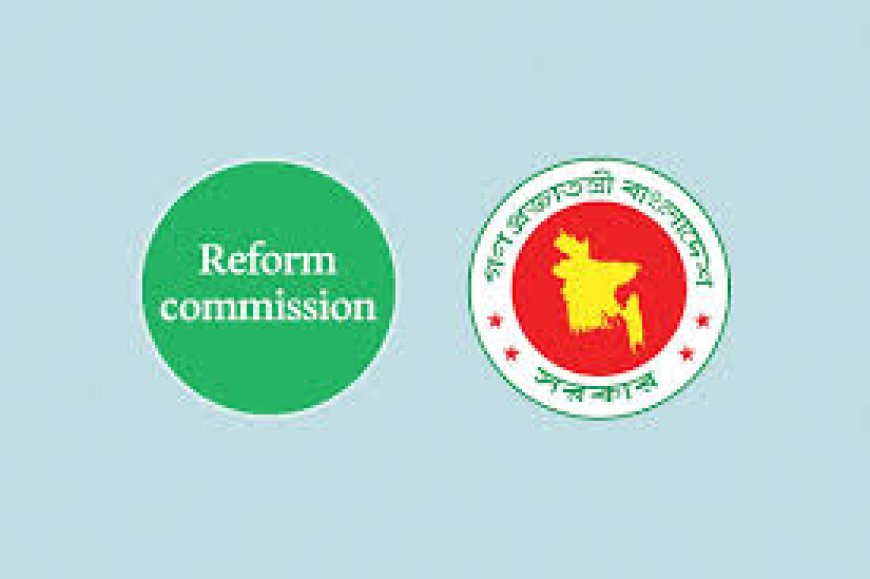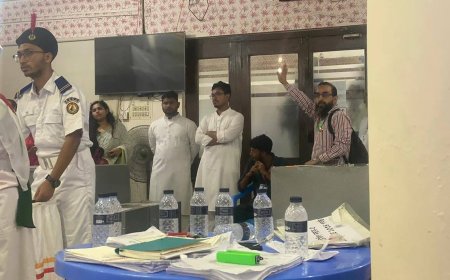The Commission suggests holding direct elections for Zila Parishad
The Commission suggests holding direct elections for Zila Parishad.

Although the Public Administration Reform Commission recommended abolishing the Zila Parishad, the Local Government Reform Commission has taken a different approach. Instead of annulment, it has proposed strengthening the Zila Parishad and holding its elections through direct voting. The commission suggests designating the Zila Parishad as a "planning unit" while making Upazila and Union Parishads "implementation units."
The Local Government Reform Commission submitted a summary of its recommendations to the interim government on Wednesday. It includes a total of 210 recommendations across 14 sectors. However, the summary has not been officially published yet and will be released once the full report is prepared.
To propose reforms in various sectors, the interim government established 11 reform commissions in two phases. Among them, six commissions formed in the first phase have already published their full reports, while those formed in the second phase, including the Local Government Reform Commission, have only submitted summaries so far.
The Zila Parishad is one of the five tiers of the local government system. However, its effectiveness under the current structure has been questioned. Historically, Zila Parishads have often been led by senior or sidelined leaders of the Awami League, leading to perceptions of them being "rehabilitation centers" for such leaders.
The Zila Parishad Act was passed in 2000, and on December 15, 2011, the Awami League government appointed administrators to 61 districts (excluding the three Hill districts) for the first time. At that time, most administrators were senior or marginalized leaders of the Awami League and its associated organizations. Elections for the Zila Parishad were later held in 2016 and 2022. Under the current law, Zila Parishad representatives are not directly elected by the people; instead, elected members of the Upazila Parishad, Pourashava, and Union Parishads vote to elect Zila Parishad representatives. In districts with city corporations, elected city corporation representatives also participate in the voting process.
According to sources from the Local Government Reform Commission, the new proposal includes direct elections for Zila Parishad members. However, there will be no direct vote for the position of chairman. Instead, the elected members of the Zila Parishad, including councilors and representatives, will vote among themselves to select a chairman or mayor.
The commission suggests that each Upazila be divided into 3 to 5 wards, with larger Upazilas having five wards and smaller ones having three. A district with 10 Upazilas would have at least 30 elected members. These members, chosen through direct public voting, will then elect a chairman from among themselves.
To enhance the role of Zila Parishads, the commission proposes making them "planning units" responsible for coordinating local development plans with national strategies. The funds allocated for different sectors at the district level will be managed by the Zila Parishad, which will then distribute resources accordingly. Additionally, six specialized groups will be formed within the Zila Parishad, focusing on areas such as education, health, agriculture, and rural development. These groups will be responsible for planning, while Upazila and Union Parishads will handle implementation.
The commission also recommends holding simultaneous elections for all local government bodies—including Union Parishads, Pourashavas, Upazila Parishads, Zila Parishads, and City Corporations—within the same area on a single day. This would help reduce election costs. Elections could be conducted in phases across different regions, but within each area, all local government elections should be held simultaneously to allow voters to select representatives for multiple tiers at once.
In contrast, the Public Administration Reform Commission has proposed abolishing the Zila Parishad and transferring its resources to newly proposed provincial governments. The commission has suggested dividing the country’s four historical divisions—Dhaka, Chattogram, Rajshahi, and Khulna—into four provinces as part of a decentralization strategy.
However, Professor Tofail Ahmed, head of the Local Government Reform Commission, opposes the idea of dividing the country into four provinces. Speaking to Prothom Alo, he emphasized that his commission has instead recommended strengthening the Zila Parishad. He also mentioned that the National Consensus Commission has begun its work, and while key recommendations have already been submitted to the government, the full report will be presented later.
What's Your Reaction?





















































































